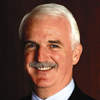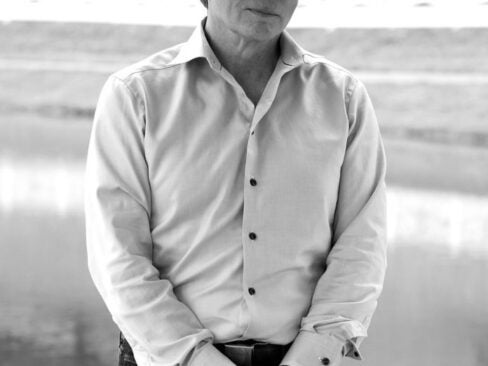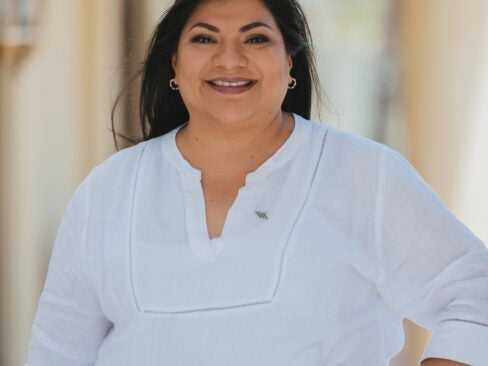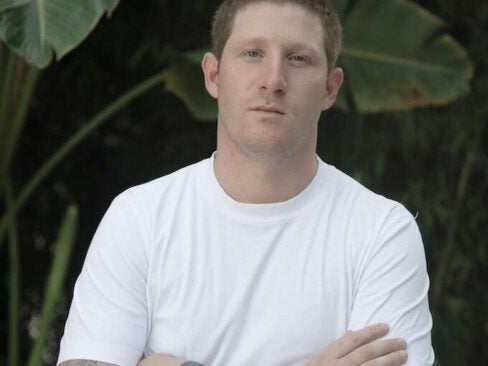
Executive ChairmanJumeirah Group
Gerald Lawless has seen quite a lot of change in his more than three decades in Dubai. As Executive Chairman of Jumeirah Group, he is now bringing the Emirate’s fast growing hotel, restaurant and residence company to the rest of the world. Saying nothing is going to get in his way is a bit of an understatement. After a skiing accident sent him to the hospital for hip replacement surgery at the end of last year, he missed a full two and a half days of work. A recent 10-day period saw him shuttling from Dubai to San Francisco, Las Vegas to attend the World Travel & Tourism Council AGM then back and back to Dubai before jetting back to New York where he took time to have lunch with Elite Traveler Editor-in-Chief Douglas Gollan at South Gate restaurant in Jumeirah Essex House.
ET: This is turning out to be a busy year for you!
Gerald Lawless: We opened our first of two resorts in the Maldives, Jumeirah Dhevanafushi. We have had the soft opening in Shanghai with the Jumeirah Himalayas and the Jumeirah Zabeel Saray Dubai on the Palm Jumeirah, which features lavish interiors inspired by Ottoman palaces and features one of the largest spas in the world. Still to come we have the second property in the Maldives, Jumeirah at Etihad Towers in Abu Dhabi, which includes fully serviced luxury residences, Jumeirah Messilah Beach Hotel & Spa in Kuwait, Jumeirah Bilgah Hotel in Baku on the shores of the Caspian Sea, Jumeirah Frankfurt, and Jumeirah Creekside, which has a prime location next to the sports complex that hosts the Dubai Tennis Championships. By the end of 2013 we look to have 30 hotels open.
ET: Is the recession over for Jumeirah Group?
Gerald Lawless: The Dubai business bounced back very quickly. The leisure sector always remained strong and now the rate has come back. We have also seen a comeback in business travel and the incentive market. A lot of people said we would never see results like 2007 again, but in fact, rates have gotten back up there, and while they don’t necessarily stay up at those levels, business is strong.
ET: Dubai was a rising star early at the turn of the century but it seemed to sputter a bit?
Gerald Lawless: Not really. Dubai this year will attract about 8 million visitors who stay at least one night in a hotel, so that doesn’t even count visiting friends and family travelers. That’s about the same as New York City, but now think New York City has a population of about eight million whereas Dubai’s resident population is about two million. Dubai is one of the top five ports in the world measured by shipping containers, it is the financial center of the Middle East with over 800 U.S. companies and the airport is among the 10 busiest in the world.
ET: Any impact from the Arab Spring?
Gerald Lawless: The UAE (United Arab Emirates) has been a haven of peace and security. It’s a very settled community. Across our businesses just in Dubai we have some 110 nationalities. To a certain extent we have seen a pick up in leisure business that might have gone to Egypt and other places in the region.
ET: There are a lot more luxury hotel groups today than there were 20 years ago and they all seem to be expanding. What is your opinion?
Gerald Lawless: Travel has grown fast. When people make money the first thing they want to do is travel, and as people create wealth for themselves they want to travel nicely. It’s a natural desire.
ET: Are luxury guests today more demanding?
Gerald Lawless: Their sites have been raised dramatically. You have to have a high guest-to-staff ratio and technology has become a major factor. You need high-definition televisions and high-speed Internet. What hasn’t changed is people like individual attention, and that comes down to the way our employees look after our guests. Guests today are also looking for more than just a beach and sun, they want an experience. In Dubai we arrange visits to The Sheikh Mohammed Centre for Cultural Understanding. The Centre operates under the banner “open doors, open minds” and underscores the similarities between the great religions instead of the differences. There is a mosque visit and everyone who goes really comes away amazed.
ET: Is there a certain size where a hotel is just too big to provide luxury service?
Gerald Lawless: It’s hard to say. If you look at Madinat Jumeirah we have four employees per room, and we have high room rates to sustain the service. We can do that in Dubai. In Frankfurt it might be harder, but in Frankfurt we are at 220 rooms.
ET: Will doubling your footprint from 10 hotels to 19 in one year put a strain on your ability to provide a luxury experience?
Gerald Lawless: Some of the openings have been delayed because of the recession so we have had plenty of time to prepare. The great thing about opening a hotel is you are opening a business which operates within its local community and virtually all employees are recruited locally. So the answer is we are ready to go.
ET: Any other news?
Gerald Lawless: We run about 120 restaurants and bars in Dubai, and we have just signed the license with Caprice Holdings for the Middle East. We are opening The Ivy at Jumeirah Emirates Tower and we also have the rights for Harry’s Bar and Annabel’s. We have also started franchising our own concept, the noodle house, which features an open kitchen where chefs cook South East Asian dishes in full view of guests. We think we will have 100 restaurants worldwide in the next five years.











